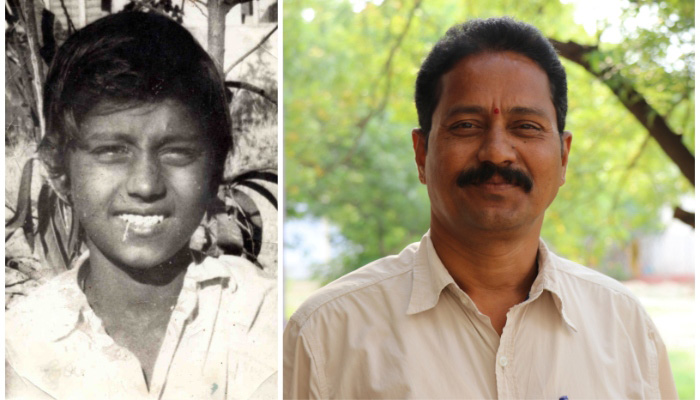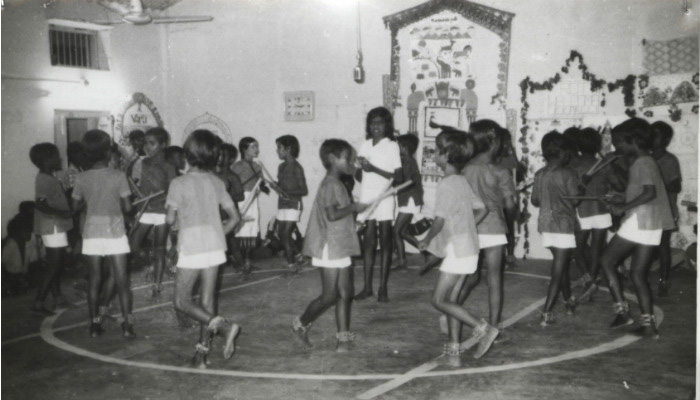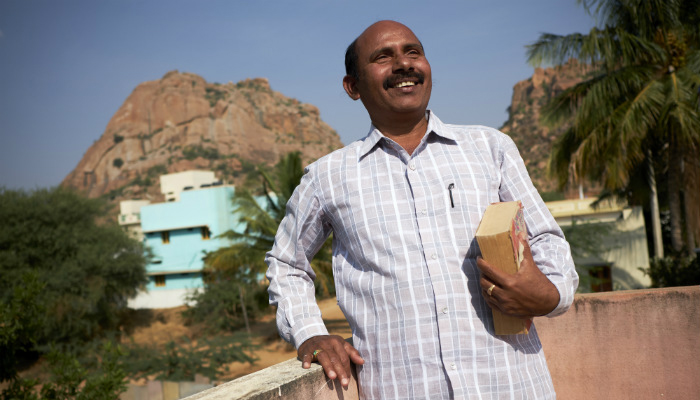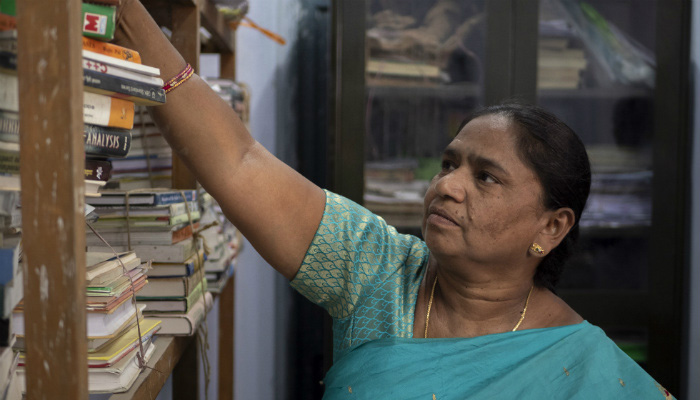Home > Blogs
When Dreams are Met with Opportunities
It is well known that education goes beyond the skill of reading and writing. It opens our mind to the world and empowers us to become independent. Currently, we live in a world where education is considered to be a basic right for all. But not so long ago, it was a luxury for many.
In 1978, the Education sector was founded by Rural Development Trust (RDT) with the goal to ensure the enrollment of children from disadvantaged communities. At that time, 90% of them were not even attending primary school. RDT began conducting awareness sessions with the parents and simultaneously created the supplementary school program.
In the 80s, the organization’s main focus was on curbing school dropouts and gradually people from disadvantaged communities began to access higher education. Wale Naik, Ramakrishna and Adilakshmi are all part of the first generation of children supported by RDT’s education program.
Archive photo of Wale Naik when he was attending RDT school in the 70s (left) and now (right) ©RDT/Aina Valldaura
Wale Naik’s parents were illiterate. The chance to receive a free meal was his main motivation for joining the RDT school in his village. Theresa, one of the first teachers at the RDT schools says, “No one really knew what it meant to have an education. Most of the parents worked in the fields from dawn to dusk for a meager daily wage. Some kids came to school untidy and unkempt. The first task of the day was to give them a bath.”
But for Wale Naik his most precious memory of those days is of the kabaddi, an indigenous contact sport, and volleyball competitions organized at the school. “I was well known in my village for my performance during kabaddi competitions. I received many awards.” For the first time in his life, he could enjoy participating in activities with other students his age without worrying about the community or family he came from. Today, Wale Naik works as a teacher in a government school and through his work he ensures that every child has a happy and safe childhood like he did.
Children participating in cultural activities during the 70s. ©RDT
Ramakrishna went to the RDT supplementary school since he was seven years old. It was 1978 and unlike the schools he attended in the past, the classes were taught in English instead of Telugu and students took part in many fun activities. And most importantly, “we were all the same,” he explains.
“We used to learn songs and dances and play sports.” His engagement in sports and cultural activities built his self-esteem and confidence. “In the school I got the knowledge to succeed in life and through sports and cultural festivals I got the recognition of my family and community for the first time.” Currently, he is working as a technician in information and broadcasting in Hindupur. He still treasures the first Telugu-English dictionary that he bought in the first year of university with the support of the RDT Scholarship.
Ramakrishna in his village in the Settur region holding the dictionary he bought with RDT’s financial support. ©Pablo Lasaosa
For Adilakshmi, RDT supplementary school was not just a place to learn but also a safe haven where she could be herself. Her parents were farmers in her native village of Pinaigeripalli and were against sending her to school for education. “My father used to take me out of the school and make me work in the fields. It was very tiring at school when I was learning to read and write. I used to cry a lot,” she remembers. “According to him, girls were supposed to work on the fields and get married, but I persisted to pursue my education through the support of my brother. On the day I received my first university degree, he apologized to me and we hugged,” she remembers.
Adilakshmi became the first woman in her region to have a university degree. Today she has four Master’s degrees and is the main librarian of the Anantapur District Library. Through her work she encourages the youth to study, so they can pave their way towards a bright and independent future.
Adilakshmi, now the librarian of Anantapur Distrrict Library. ©Cristòfol Oliver/RDT
RDT’s efforts to guarantee sustainable access to education to all at all levels are ongoing. The continuous programs and activities over the years have made it possible to achieve 100% enrollment at the primary level in all the villages that RDT works in.
Text: Ambre Panhard, adapted by Vicente Ferrer Foundation USA

Meehanski: “My disability hasn’t stopped me from making my dreams come true”
09/29/2022Meehanski defines herself as a feisty and stubborn woman, but above all independent and ha...
READ MORE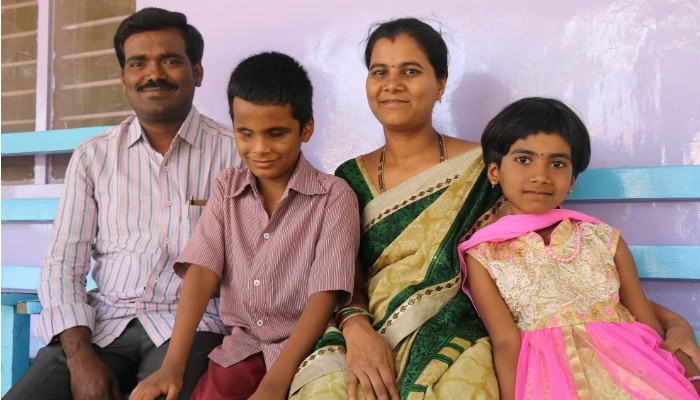
Visually impaired student becomes a Telugu singing star
09/28/2022“When I sing, I feel invincible,” says Sreesanth Naik. At the young age of 10, he has ...
READ MORE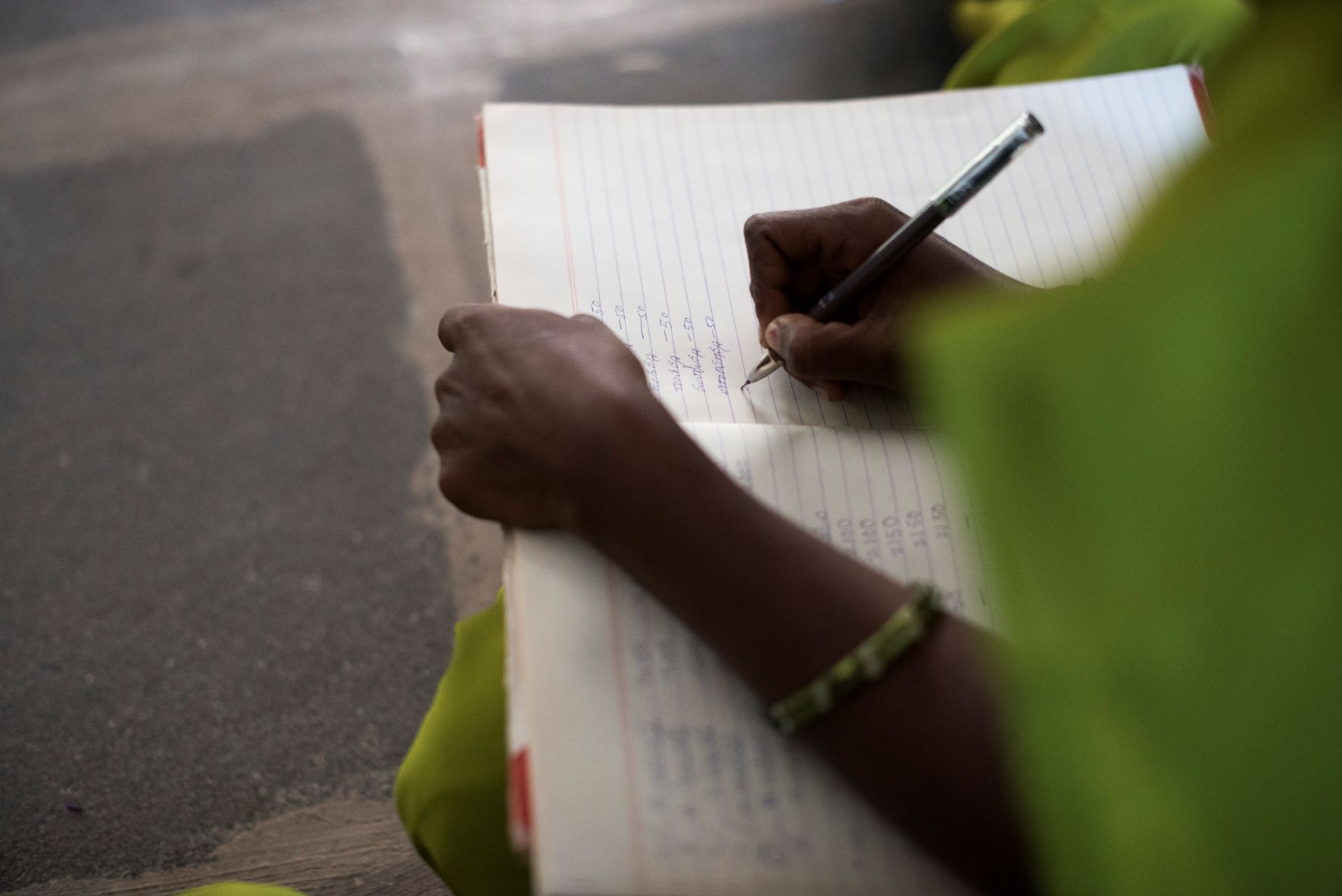
Malleswari’s Story: How Education Helps Breaks the Cycle of Poverty
12/22/2021Born in a village located in the deep forest of Nallamala in the Indian state of Andhra Pr...
READ MORESupport our work to help individuals and communities affected by COVID-19
Would you like to know how we use the funds?LEARN MORE
 October 2, 2019
October 2, 2019